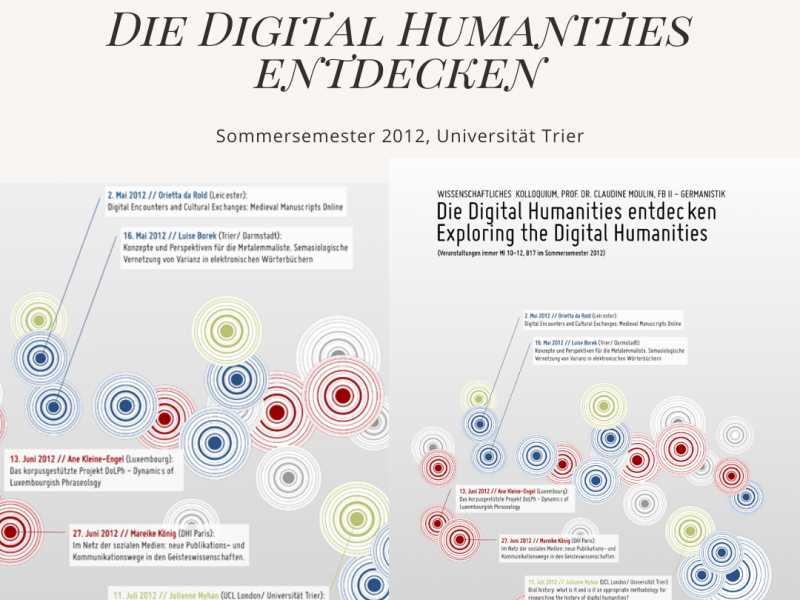Das Forschungsprojekt BILAND
Vortrag von Pim Huijnen (Descartes Centre for the History and Philosophy of the Sciences and the Humanities, Universität Utrecht)

Datum:
28.11.2012Ort:
A 338, Universität Trier
Kategorie(n):
VeranstaltungAm 28.11.2012 stellt Pim Huijnen (Descartes Centre for the History and Philosophy of the Sciences and the Humanities, Universität Utrecht) im wissenschaftlichen Kolloquium „Digital Humanities“ das Forschungsprojekt BILAND vor.
Titel: BILAND: Eine Webapplikation für historisch-komparatives Data-Mining in öffentlichen Medien aus unterschiedlichen Ländern.
Zeit/Ort: 28.11.2012, 8:30 Uhr, A 338, Universität Trier
Abstract:
What are the possibilities and challenges of data-mining for historical research? These are the questions I would like to raise in my talk on the BILAND project I am, as a historian, engaged in. BILAND, built by a team of both historians and computer experts, aims to develop a data-mining tool for historical research, more in particular for what is called history of mentalities. Its goal is to be able to make explicit those cultural, day-to-day contexts in which certain tacit knowledge was employed, by people who were perhaps not even aware of it. The case the BILAND project focusses on is the dissemination of knowledge of genetics and eugenics in Dutch and German culture before 1945. The comparative perspective enables us to address the important question about how, when and to what extent discourses about heredity, genetics and eugenics in Germany began to differentiate from the Netherlands. To give the comparison shape, a large number of historical news media will be analyzed in the project. After all, these have been a playing ground for (re-) shaping the meanings of eugenics and human heredity in a broad spectrum of discourses within various contexts. In other words, historical records offer us various scenarios of how societal hopes and fears about genetics may influence public health and social policies. Also, the use of news media as the main type of primary sources enables us to take into account the diversity and fluidity of public discourses around heredity and eugenics.
Hitherto, comparative historical research on the above mentioned dynamics has been severely hampered by the extraordinary task of manually gathering and processing large sets of opinionated data in news media in different countries. At most 50.000 documents have been systematically studied in a single comparative historical project in the aforementioned subject area. Furthermore, most of these documents explicitly refer to eugenics issues and debates and do not provide information on ideas and notions about heredity, genetics and eugenics that circulate in discourses that are not directly related to eugenics (entertainment, sport and culture). Our digital tool is meant to overcome limitations like these by performing text-mining processes in data sets on a much larger scale and, theoretically, within different types of news media (newspapers, magazines and transcripts of radio recordings). In this way, the BILAND tool will enable historians in general to collect and process large bi-lingual sets of opinionated text-data from news media and extract discourse identity and intensity patterns in different countries.
Alle Interessierten sind herzlich eingeladen.

